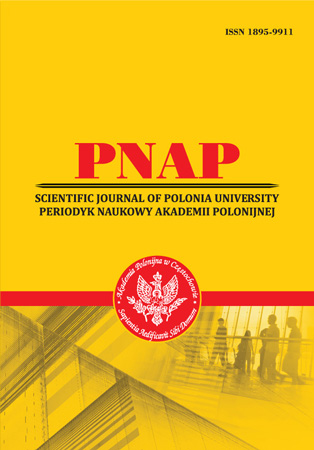DIGITALIZATION OF EDUCATION AS A CONDITION FOR TEACHER PROFESSIONAL DEVELOPMENT
Abstract
The article deals with the issue of distance learning implementation during the Covid-19 pandemic and the readiness of teachers for professional development by means of information and communication technologies. Significant problems that arose during the organization of distance learning in educational institutions during the pandemic crisis are noted. The rapid development of digital and information technologies has led to new prospects for personal development in a networked society. Theoretical provisions on the essence of the notions “information competence”, “digitalization of education”, “distance learning” are considered. The content of distance learning platforms such like Edera, Prometheus, EdX, Coursera for the development of teachers' professional competence, including information and communication competence in the intercourse period is analyzed.The possibility of introducing new methods of pedagogical support of tutoring, coaching and mentoring during the organization and implementation of competency-based learning is considered. The article can be useful for specialists of general secondary education during the organization of distance learning and in the development of individual plans for professional development of pedagogical staff.
References
2. Byrko, N. (2018). Teoretyko-metodolohichni zasady pedahohichnoi tvorchosti, maisternosti, profesionalizmu [Theoretical and methodological principles of pedagogical creativity, craftsmanship, professionalism]. Retrieved from http://enpuir.npu.edu.ua/bitstream/123456789/21721/1/Byrko.pdf. [in Ukrainian]
3. Declaration of Principles. Building the Information Society: a global challenge in the new Millennium (n.d.). Retrieved from http://www.itu.int/wsis/docs/geneva/official/dop.html.
4. Fisun, O. (2010). Pedahohichna fasylitatsiia yak bahatoznachnyi fenomen. [Pedagogical facilitation as a multifaceted phenomenon]. Zasoby navchalnoi ta naukovo-doslidnoi roboty: zb. nauk. prats KHPU im. H. S. Skovorody, 34, 133–139. [in Ukranian]
5. Hordiienko, T. (n.d.). Retrieved from https://ms.detector.media/onlainmedia/post/21728/2018-09-01-nikoli-ne-pizno-5-platform-dlya-samoosviti.
6. Information and Communication Technology in Education: A Curriculum for Schools and Programme of Teacher Development (2002). UNESCO. Retrieved from http://unesdoc.unesco.org/images/0012/001295/129538e.pdf.
7. Kontseptsiia “Nova ukrainska shkola” [The Concept of the “New UkrainianSchool”] (2017). Retrieved from https://mon.gov.ua/storage/app/media/zagalna%20serednya/nova-ukrainskashkola-compressed.pdf.
8. Kravchenko, S. (2020). Tsyfrovizatsiia yak tendentsiia rozvytku shkilnoi osvity u SShA [Digitization as a trend in the development of school education in the United States]. Retrieved from http://lib.iitta.gov.ua/id/eprint/720564 [in Ukrainian]
9. Lebedeva, I. V., Aksyonov, S. I. (2014). Uchitel ili kouch? Sovremennye problemy nauki [Teacher or coach? Modern problems of science]. Retrieved from science-education.ru.
10. Osvita protiahom zhyttia: svitovyi dosvid i ukrainska praktyka. Analitychna zapyska [Lifelong learning: world experience and Ukrainian practice. Analytical note]. (n.d.). Natsionalnyi instytut stratehichnykh doslidzhen. Retrieved from http://www.niss.gov.ua/articles/252.
11. Polozhennia pro dystantsiine navchannia. Nakaz Ministerstva osvity i nauky Ukrainy vid 25.04.2013 № 466 [Provision on distance learning. Order of the Ministry of Education and Science of Ukraine dated 25.04.2013 № 466] (2013). Retrieved from https://zakon.rada.gov.ua/laws/show/z0703-13#Text.
12. Profesiinyi standart za profesiiamy “Vchytel pochatkovykh klasiv zakladu zahalnoi serednoi osvity” ta “Vchytel zakladu zahalnoi serednoi osvity” [Professional standard for the professions “Primary school teacher of General secondary education institutions” and “Teacher of General secondary education institutions”]. (n.d.). Retrieved fromhttps://mon.gov.ua/ua/news/mon-rozrobilo-novij-profesijnij-standart vchitelya-dokument-na-gromadskomu-obgovorenni.
13. Sokolova, E. (2013). Analiz terminologicheskogo ryada “kouch”, “mentor”, “tyutor”, “fasilitator”, v kontekste nepreryvnogo obrazovaniya [The analysis of terminological row “coach, mentor, tutor, facilitator” within the frame of lifelong learning]. Nepreryvnoe obrazovanie: XXI vek, (4), 1–11. [in Russian]
14. Vasiuk, O., Skumin, T. (2011). Teoretyko-metodychni aspekty orhanizatsii dystantsiinoi osvity [Theoretical and methodical aspects of distance learning]. Visnyk Knyzhkovoi palaty, 2, 1–3. [in Ukrainian]
15. Vylegzhanina, A. (2015). Chto takoe kouching? Tehnologiya raskrytiya potenciala cheloveka [What is coaching? Technology for unlocking human potential]. Retrieved from https://elib.utmn.ru/jspui/bitstream/ru-tsu/2091/1/679.pdf.
16. Woollard, J. M. (2012). The role of ICT in Western Australian Education: Living and Working in a Digital World. Perth: Parliament of Western Australia. [in English] Yemets, Ye., Kozyr, O. O., Karnaukhova, H. V. (2013). Vykorystannia informatsiinykh tekhnolohii u protsesi formuvannia profesiinoi kompetentnosti maibutnikh kibernetykiv [The use of information technology in the process of forming the professional competence of future cyberneticists]. Retrieved from dspace.uccu.org.ua.
Abstract views: 519 PDF Downloads: 250







